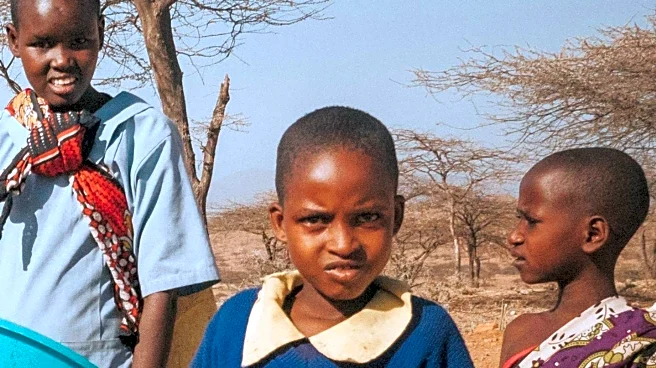What's Happening?
Cholera, a disease with ancient origins, is resurging in Africa, prompting urgent action from health organizations. Over the past three years, cholera cases have more than doubled, with over 230,000 cases and nearly 5,000 deaths reported this year across 23 countries. The Africa Centres for Disease Control and Prevention and the World Health Organization have announced an emergency plan to combat the outbreak, which is exacerbated by conflict and poverty. The plan includes establishing over 350 cholera treatment centers and distributing 10 million oral cholera vaccine doses. The initiative aims to eliminate cholera as a major public health issue by 2030.
Why It's Important?
The resurgence of cholera in Africa highlights significant gaps in healthcare infrastructure and access to clean water, which are critical for preventing the spread of the disease. The situation underscores the need for coordinated international efforts to address health crises exacerbated by conflict and poverty. The emergency plan's focus on improving water infrastructure and healthcare access is vital for reducing cholera fatalities and preventing future outbreaks. The initiative also emphasizes the importance of cross-border cooperation and resource mobilization to tackle health challenges in affected regions.
What's Next?
The emergency plan will be implemented over the next six months, with a budget of $231 million. Health organizations will focus on mobilizing resources and coordinating efforts across multiple ministries to improve water infrastructure and healthcare access. The long-term goal is to eliminate cholera as a major public health issue by 2030, requiring sustained international support and collaboration. The success of the initiative will depend on the ability to address underlying issues such as poverty and conflict, which contribute to the spread of cholera.
Beyond the Headlines
The cholera resurgence in Africa highlights broader issues related to global health equity and the impact of socio-political factors on disease management. The initiative's focus on improving water infrastructure and healthcare access reflects a shift towards addressing root causes of health crises rather than just treating symptoms. The collaboration between health organizations and governments at the presidential level represents a significant step towards integrated health policy and cross-sectoral cooperation.










